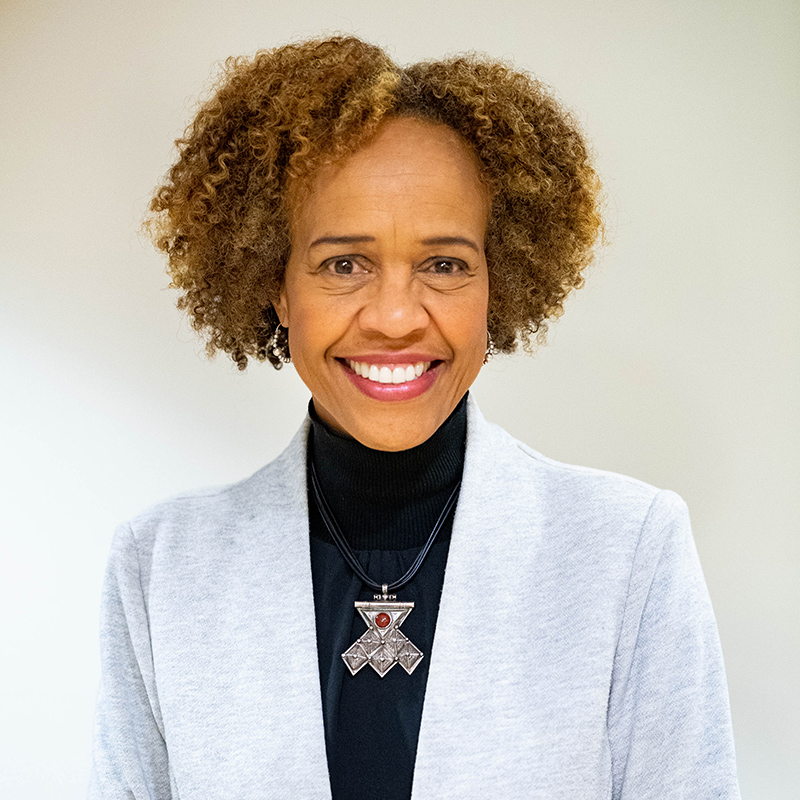Bisa Williams

Senior Fellow
Ambassador Bisa Williams (ret) is co-founder and managing director of Williams Strategy Advisors, LLC (WSA), a problem-solving business and foreign affairs advisory consulting firm. For the last two years, she has also led The Carter Center’s effort as independent observer of implementation of the peace agreement in Mali. Before forming WSA, Williams was a career member of the Foreign Service of the U.S. Department of State. During her more than 30 years in the Foreign Service, she served tours in Guinea (Conakry), Panama, Mauritius, France, the U.S. Mission to the United Nations, Washington, D.C., and Niger. As Acting Deputy Assistant Secretary of State for Western Hemisphere Affairs, Williams led the U.S. delegation to talks in Havana, Cuba, breaking a seven-year hiatus of high-level direct discussions.
She joined us (virtually) for a Q&A in August 2020.
Read Full BioBut, when I got to Yale, the friction really came not so much from the university as a learning establishment - but from the social environment. And, I wasn’t prepared for that. So, one of the lessons that I learned is that, as women, we need allies. It's nice if the allies look just like you. But that's not what an ally is. An ally is someone who has your back. So, it doesn't matter if they look like you or not. And that's really important to understand.
I also learned that you need plan A, B, and C in whatever you're doing. I think the greatest lesson from that period in time was that you will encounter obstacles and you will encounter adversaries, people who are trying to thwart you. So, you need to know how to care for yourself, know what you require to be fortified.
My big message would be that we need good diplomats and diplomats represent the country. Career Foreign Service officers work regardless of the administration. We are building relationships for the good of the American people, for the security of our nation. The diplomats in the latter part of this century are going to have the arduous task of restoring U.S. credibility abroad. But, that's what diplomacy is for. It's definitely a rewarding career and important career and one that never stays boring very long.
The U.S. has signaled weird affinities to some very odd and worrisome despots. We have demonstrated a rather cavalier attitude toward the rule of law and toward the notion of equal justice. The apparent assault on human rights and civil liberties through which our country has convulsed the last few years has called into question our own bona fides as a fully democratic nation. We have to get our house in order internally before an American diplomat can effectively propose governing solutions and partnerships abroad. I do think that our biggest challenge will be re-building credibility and it will take aggressive, bold actions to do so.
I wanted to take a real-life, it’s-happening-now example and walk through the kinds of issues that have to be considered when the bullets stop and you are faced with the opportunity—and challenge—of building peace. I hope to take the class along through the various things that have to be considered. What are the priorities? How do you do it? Who’s involved?
I will use the ongoing experience in Mali as one anchor and take as another anchor one of my early diplomatic experiences, which was in Panama right after Operation Just Cause. There were still a lot of pieces that needed to be picked up once the dust settled from that experience as well. These are events and complications which you can't necessarily anticipate but, for the foreign affairs practitioner, examining these types of situations can be an important exercise.
Students will study the choices made in the early stages of peace-building and the consequences of those choices. I want the students to start thinking about strategies to use. I think it can be a fun course. I hope it will give a flavor of the future that many of these students are going to be walking into.